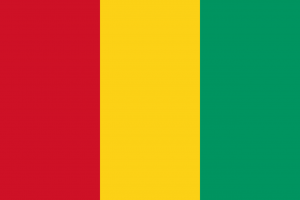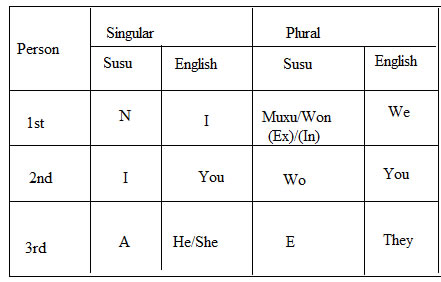Difference between revisions of "Language/Susu/Grammar/The-subject-pronouns"
Jump to navigation
Jump to search
m (Quick edit) |
|||
| Line 14: | Line 14: | ||
[[File:susu-subject-pronoun.jpg]] | [[File:susu-subject-pronoun.jpg]] | ||
==Related Lessons== | |||
* [[Language/Susu/Grammar/Possessive-Adjectives|Possessive Adjectives]] | |||
* [[Language/Susu/Grammar/The-Demonstratives|The Demonstratives]] | |||
* [[Language/Susu/Grammar/Future-Tense|Future Tense]] | |||
* [[Language/Susu/Grammar/Past-Tense|Past Tense]] | |||
* [[Language/Susu/Grammar/Object-Pronouns|Object Pronouns]] | |||
* [[Language/Susu/Grammar/Indirect-object-pronouns|Indirect object pronouns]] | |||
* [[Language/Susu/Grammar/To-have|To have]] | |||
* [[Language/Susu/Grammar/Present-Tenses|Present Tenses]] | |||
* [[Language/Susu/Grammar/Tan|Tan]] | |||
Revision as of 23:56, 25 February 2023
How to use the Subject Pronouns in Susu
Hello Susu learners,
➡ In today's lesson you will learn How to use the Subject Pronouns in Susu language.
In Susu, there are three singular subject pronouns and four plural subject pronouns.
The first person plural has two variants.
- Muxu: exclusif: The person you are taking to , is not included.
- Won: inclusif: The person you are talking to is included.

